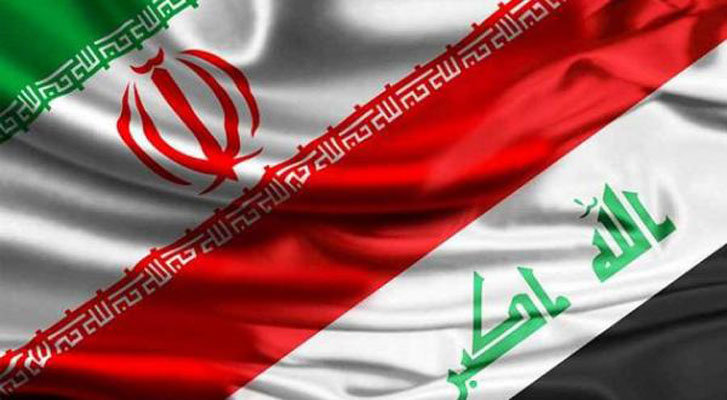Iraq's Shiite Movements oppose U.S. sanctions on Iran

After the first package of U.S. economic sanctions against Iran began Tuesday to intensify pressure on our country, the Baghdad government announced that it will hold to the sanctions to protect its people. “As a matter of principle we are against sanctions in the region. Blockade and sanctions destroy societies,” Heidar al-Ebadi said at a news conference. “We consider them (sanctions on Iran) a strategic mistake and incorrect but we will abide by them to protect the interests of our people. We will not interact with them or support them but we will abide by them,” he added.
This is while after this stance, Baghdad announced that it will only refrain from using the dollar in transactions with Iran without complying with the full scope of U.S. sanctions against the Islamic Republic.
"Our commitment in the Iran issue is to not use the dollar currency in transaction, not abiding by the U.S. sanctions," state television quoted al-Ebadi as telling a news conference in Baghdad on Monday.
However, what is important here regarding the announcement of the official statements by the Baghdad government on Iran's sanctions, is the subsequent positions taken by Shiite parties, groups and movements against these sanctions. In some ways, we can say that after the Baghdad government's announcement, there was a long line of opposition from Shiite currents to U.S. sanctions against the Islamic Republic of Iran.
Accordingly, chief of National Wisdom Movement (NWM) Ammar al-Hakim said that the U.S. sanctions is a clear bypassing of the international will. “The Islamic Republic of Iran is under pressure and sanctions which have targeted its economic and political establishment,” Hakim said during a meeting.
He added, “I call on everyone to stand by the Islamic Republic of Iran during this crisis and help this country… Our religious and moral duty is to stand by the Islamic Republic of Iran because that country has stood by us in all of our crises. We, as Iraq’s politicians, should play our role in the best possible way in order to reduce pressure via a cooperation between the international community and the Islamic Republic,”” he noted.
The Iraqi politician also described Iran as a “strategic depth of Iraq”, saying the two countries share 1,300 kilometers of borders as well as many mutual interests.
“I don’t think the Islamic Republic is willing to [start] a war,” he said, adding that the U.S. and regional countries also do not see their benefits in a war.
Hakim also called on the regional countries to hold constructive talks in a bid to put an end to the regional conflicts. He then condemned the U.S. unilateral sanctions against Iran.
"We believe that weakening Iran will neither benefit Iraq nor any of the regional states which intend to impose economic siege on the country, as the aftershocks of this measure will not be limited to Iran and will affect the entire region," the Iraqi religious leader emphasized.
Also, al-Nujaba Movement, a major Shiite resistance group, condemned new U.S. sanctions on Tehran, calling on Iraqi politicians to stand by Iran in tough times.
The head of al-Nujaba’s Political Council Sheikh Ali al-Asadi addressed the Iraqi politicians and said “We condemn this awful decision and ask you (Iraqi officials) to stand by the brave Iranian nation and its wise leader as they stood by the Iraqi nation while our land was attacked by the evil forces and when we had no help but the children of Salman the Persian".
He added, “The cruel decision made by the U.S. president against the Iranian nation is against all the human values and international and moral laws … Iran will strongly and successfully pass the current stage; as it did in the past through the directions of its wise leader”.
Further, the Iraqi Shiite militia Asa'ib Ahl al-Haq said, "We regret the issuance of such a position by the Iraqi prime minister, and we believe he did not need to commit himself and oblige the Iraqi state to such a commitment …This position is not binding to the next government, which we hope to be based on Iraqi interests and will take into account the sovereignty of Iraq and not be part of the Trump administration in its reckless policies regarding the region and the world."
Hassan Salim, a leader in the Fatah coalition, called on the Iraqi government to "repay Iran's favor," referring to the help provided by Iran in removing the Islamic State from Iraqi territory.
Former Prime Minister Nouri al-Maliki also criticized Abadi, saying, “U.S. sanctions on Iran are a flagrant violation of international law” and Iraq must not abide by them, just as it did not abide by earlier U.S. sanctions on Syria.
Iraqi President Fuad Masum that given Iraq and Iran's growing trade ties and other relations, it was hard for Iraqi companies to adhere to Washington’s sanctions on Tehran because it could backfire on Iraq. He added that the situation in Iraq, the nature of its relations with Iran and large mutual interests will make it difficult for Iraq to comply with these decisions.
The extensive support of the Iraqi Shiite movements of the Islamic Republic of Iran against U.S. sanctions actually undermined the hostile attempts to raise up tensions in the relations between Baghdad and Tehran. The positions of several Shiite groups against U.S. sanctions indicates that the relations between the Islamic Republic of Iran and Iraq, regardless of some differences, are firmly established, and nothing could undermine these strategic and deep ties. Obviously, in such a situation, the United States has also sought to reduce Iran's influence in Iraq, but the positions taken by the Shiite movements have so far neutralized this conspiracy and will further neutralize it in the future.
